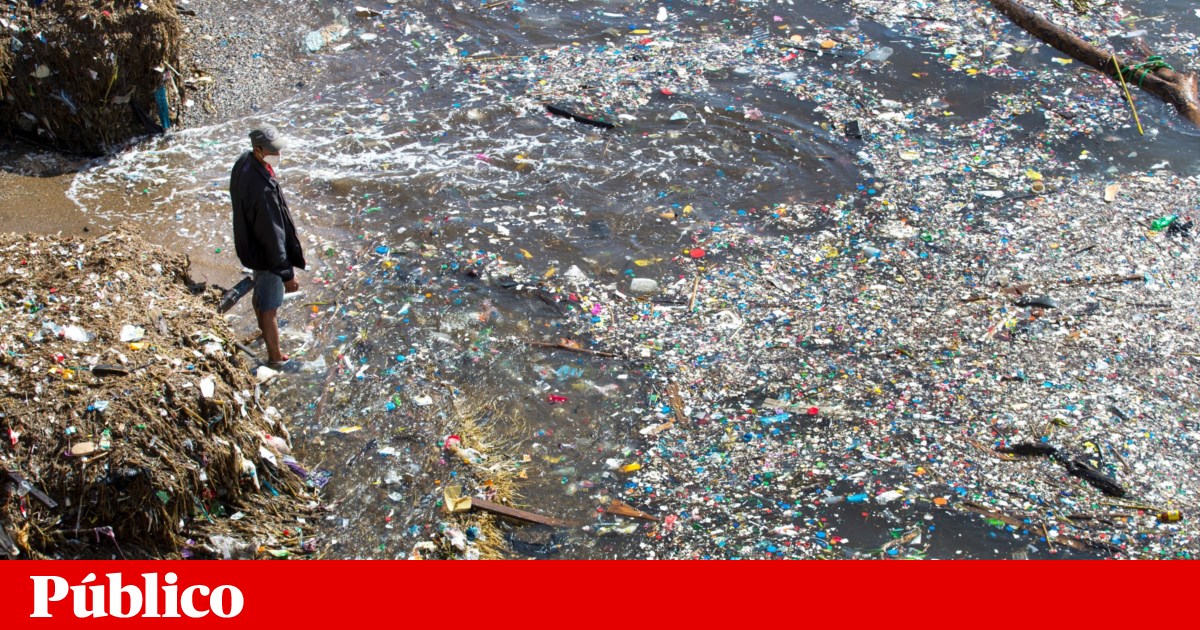
[ad_1]
The SMART project, which brings together researchers from five Portuguese institutions, was the winner of the 1st edition of the “AI Moonshot Challenge” competition and will receive 500,000 euros to develop a project to combat ocean pollution.
The Portuguese Space Agency (Portugal Space) announced Thursday that the project of the team led by the Center for Natural Resources and the Environment (CERENA-IST) “plans to combine machine learning (artificial intelligence) with principles of the laws of physics to build models for the prediction and simulation of the accumulation of plastic in the ocean ”from the data collected by the satellite.
To do this, the researchers will use satellite data from the Copernicus program to determine the appropriate frequencies for detecting plastics in water bodies and integrate this information with models that simulate ocean behavior. “A mission hampered by the size of the debris and the resolution of the satellite images currently available,” adds the Portuguese space agency in a statement.
The “AI Moonshot Challenge” was launched during the 2019 edition of the Web Summit, and the winners were announced at this year’s edition of the technology summit which takes place in Lisbon until Friday, and aims to find “disruptive ideas” and new solutions that combine information technologies, satellite data and artificial intelligence to solve the problems related to climate change.
The jury – chaired by biologist Carolina Sá and Paolo Corradi, systems engineer at the European Space Agency (ESA) – also assessed whether the Portuguese researchers intended to use “autonomous marine vehicles to validate the results and collect even more data” .
Quoted in the statement, the president of the Portuguese Space Agency, Ricardo Conde, says that “the use of satellite data, particularly from the Copernicus program, allows for large-scale solutions to be found to some of the many challenges facing climate change” .
For the Minister of Science, Technology and Higher Education, Manuel Heitor, space will be key to fighting climate change and preserving the ocean. “The remote sensing of plastic in the oceans based on the integration of satellite images and advanced artificial intelligence systems will be decisive for the sustainable future of the planet and its relationship with the climate. This award is part of the collective effort on a global level and will stimulate new research activities in Portugal ”, said Manuel Heitor, also quoted in the statement.
For Paulo Dimas, vice president of product innovation at Unbabel, a company that supports the “AI Moonshot Challenge”, “artificial intelligence has the potential to be able to combine all of this data and find patterns and detect where it normally does. it wouldn’t be possible “.
In addition to CERENA-IST researchers, the SMART project includes specialists from the Laboratory of Underwater Systems and Technologies (FEUP), the Associated Laboratory Center for Environmental and Marine Studies (CESAM), the Hydrographic Institute and MIT-Portugal.
The competition, promoted by the Portuguese Space Agency in collaboration with the Foundation for Science and Technology (FCT), Unbabel, European Space Agency (ESA), National Innovation Agency (ANI) and Web Summit, ten projects by institutions from 13 countries.
.
[ad_2]
Source link